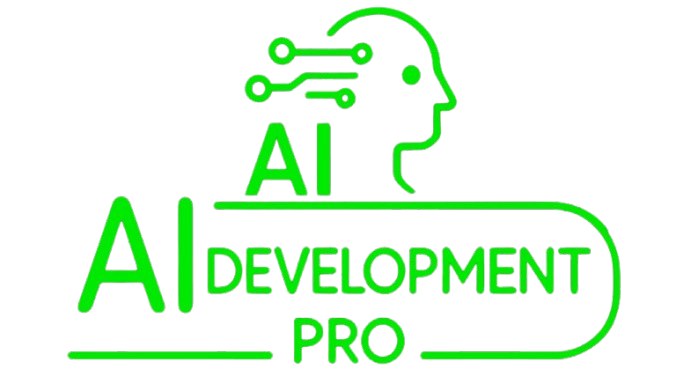

Top Trends in AI Agent Builder Technology This Year
Top Trends in AI Agent Builder Technology This Year
The field of artificial intelligence is evolving rapidly, and AI agent builder technology is at the forefront of this transformation. In 2025, businesses and developers are leveraging advanced AI agent builders to create intelligent, autonomous systems capable of handling complex tasks. From customer service automation to predictive analytics, AI agent builders are reshaping industries by offering scalable, efficient, and highly customizable solutions. This article explores the top trends in AI agent builder technology this year, providing insights into how these innovations are being applied and what to expect in the near future.
The Rise of No-Code AI Agent Builders
One of the most significant trends in 2025 is the growing popularity of no-code AI agent builders. These platforms allow users with little to no programming experience to create sophisticated AI agents. By using intuitive drag-and-drop interfaces, businesses can deploy AI solutions without relying on extensive technical expertise. For example, companies like Zapier and Bubble have integrated AI agent builders into their ecosystems, enabling users to automate workflows effortlessly.
No-code AI agent builders are particularly beneficial for small and medium-sized enterprises (SMEs) that lack dedicated AI teams. These tools democratize access to AI, allowing businesses to streamline operations, enhance customer interactions, and improve decision-making. As the technology matures, expect even more user-friendly features, such as pre-built templates and natural language processing capabilities, making AI agent creation accessible to everyone.
Hyper-Personalization with AI Agents
Hyper-personalization is another major trend driven by AI agent builders. Modern AI agents can analyze vast amounts of data to deliver highly tailored experiences for users. For instance, e-commerce platforms use AI agents to recommend products based on browsing history, purchase behavior, and even real-time interactions. This level of personalization boosts customer engagement and drives sales.
AI agent builders now incorporate advanced machine learning algorithms that continuously learn from user interactions. This means AI agents can adapt their responses and recommendations over time, ensuring relevance and accuracy. Companies like Netflix and Amazon have set benchmarks in hyper-personalization, and with AI agent builders, even smaller businesses can achieve similar results. The key is to integrate these agents with existing data systems to maximize their potential.
AI Agents in Multilingual Customer Support
Customer support has been revolutionized by AI agent builders, especially in multilingual environments. Businesses operating globally require AI agents that can understand and respond in multiple languages seamlessly. In 2025, AI agent builders are equipped with state-of-the-art natural language processing (NLP) models that support real-time translation and context-aware responses.
For example, an AI agent builder like Dialogflow or IBM Watson can deploy chatbots that interact with customers in their native language, reducing response times and improving satisfaction. These agents can also detect nuances in tone and intent, ensuring more human-like interactions. As businesses expand into new markets, multilingual AI agents will become indispensable for maintaining high-quality customer service.
Integration with IoT and Edge Computing
The integration of AI agent builders with the Internet of Things (IoT) and edge computing is another groundbreaking trend. AI agents are now being deployed on edge devices, enabling real-time data processing without relying on cloud infrastructure. This is particularly useful in industries like manufacturing, healthcare, and smart cities, where latency and data privacy are critical.
For instance, an AI agent builder can create agents that monitor equipment in a factory, predicting failures before they occur. These agents process data locally, reducing delays and enhancing efficiency. Similarly, in healthcare, AI agents on edge devices can analyze patient vitals instantly, providing timely alerts to medical staff. The combination of AI agent builders and edge computing is unlocking new possibilities for autonomous systems.
Ethical AI and Transparency in Agent Building
As AI agents become more prevalent, ethical considerations are taking center stage. In 2025, AI agent builders are incorporating features that ensure transparency, fairness, and accountability. Developers can now track decision-making processes within AI agents, making it easier to identify and mitigate biases.
Regulatory bodies are also pushing for stricter guidelines on AI usage, prompting AI agent builders to include compliance tools. For example, some platforms now offer built-in auditing capabilities that log all agent interactions and decisions. This not only builds trust with end-users but also helps businesses adhere to evolving regulations. Ethical AI is no longer optional, and AI agent builders are leading the charge in responsible innovation.
AI Agents for Predictive Analytics and Decision-Making
Predictive analytics is another area where AI agent builders are making a significant impact. Businesses are using AI agents to forecast trends, optimize operations, and make data-driven decisions. These agents analyze historical and real-time data to provide actionable insights, reducing uncertainty and improving strategic planning.
For example, financial institutions use AI agents to predict market fluctuations and assess credit risks. Retailers leverage them to manage inventory and anticipate customer demand. The ability of AI agent builders to integrate with various data sources ensures that predictions are accurate and up-to-date. As machine learning models become more sophisticated, the predictive capabilities of AI agents will only improve.
The Future of AI Agent Builders
Looking ahead, AI agent builders will continue to evolve, offering even more advanced features and applications. We can expect greater integration with augmented reality (AR) and virtual reality (VR), enabling immersive AI interactions. Additionally, advancements in quantum computing may further enhance the speed and capabilities of AI agents.
Businesses that adopt AI agent builders early will gain a competitive edge, as these tools become essential for innovation and efficiency. Whether it's automating routine tasks, personalizing customer experiences, or making data-driven decisions, AI agent builders are transforming how we work and interact with technology.
Support our work by sharing on multiple social platforms. Join our community







